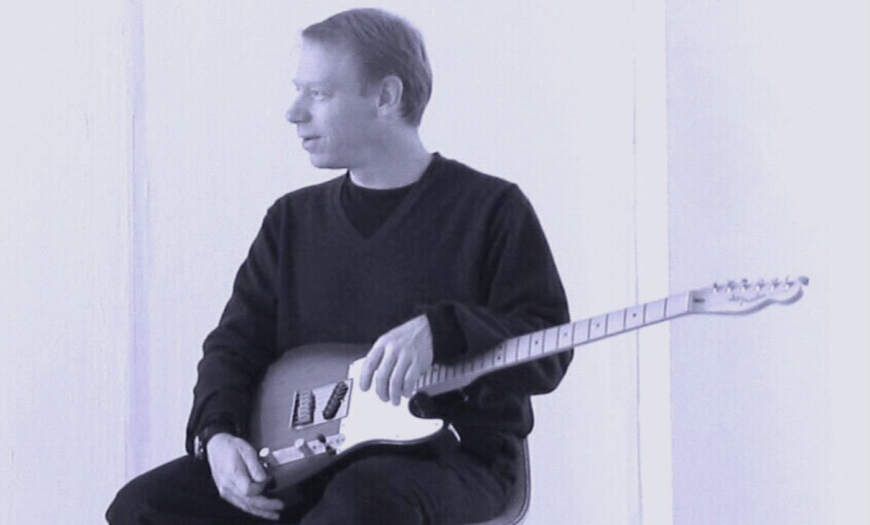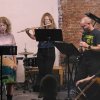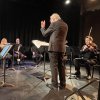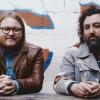
Automata, a small storefront turned art space in Los Angeles’ Chinatown, became a bridge joining meditation to mayhem on Friday, July 27, as the Dog Star Orchestra presented a free concert, “Terrains,” that unfolded from hushed invocation to thunderous protest.
The performance drew barely 30 listeners into the spare gallery: gun-gray walls, folding chairs, street noise filtering through the blacked-out windows. Dog Star, a yearly experimental music festival now in its 21st summer, thrives in such rooms. Michael Pisaro launched the series in 2005 to give emerging composers and the experimental scores he loved a free platform — an ethos that still guides the festival two decades on.
“Terrains” paired two composer-performer duos to show how much ground that vision can cover.
Pianist-percussionist Michael Jones opened with Scott Wollschleger’s trace-escape-horizon for bowed vibraphone, orchestra bells, and other percussion. Long, glassy tones, evoked by fragile bow strokes and tiny surface exciters, hovered just above audibility. Pitch pipes and ghostly harmonics bent the vibraphone’s usual bell-like tones into something weightless. The piece unfolded in slow, clearly articulated sections, each deliberately expanding its sound world with new notes and timbres.
In Automata’s hushed air, every outside sound — distant traffic, a passerby’s laugh — became part of the score, sharpening a sense of shared, almost scientific listening. The music both gave shelter from the sonic intrusion and provided the clamor with context, incorporating it into the experience.
After intermission, the room went black. A bass-drum crack detonated the darkness. Percussionist-vocalist Bonnie Whiting stepped into the light surrounded by drums decorated with flowers and palm fronds. Stages by composer Wang Lu traded Wollschleger’s meditative containment for exuberant sprawl.
Slowly, Whiting brought out more instruments (props?): reflective thermal sheets, pot lids, and children’s toys. Her voice began in a kind of chanted proto-speech before coalescing into text from Lucy Corin’s One Hundred Apocalypses and Other Apocalypses: “I am afraid of the end of the world and yet I long for it.”
Plastic toy radios hissed with static-tinged music; a handheld milk frother buzzed raw, metallic against the bass-drum skin; coins poured from a red plastic cup, rattled into a bucket and onto the floor. Whiting marched the aisle with clash cymbals, then with a snare, flirting with militaristic parody. The space around her became a tangle of objects, piled atop one another. Chaos threatened, yet her precise touch kept the storm rhythmic and choreographed — a carnival of abstraction and emotion anchored by expert technique.
What bridged Friday’s two performances was the drone, treated first as patient meditation and then as manic undertow. Jones’s floating sounds asked listeners to breathe and experience the space. Whiting’s layers surged into the room with an exuberant energy — contemplation and confrontation held in sequence, perhaps even in dialogue.
Automata’s bare aesthetic offers no velvet to muffle these extremes, no raised stage to force distance between performer and listener. And Dog Star’s do-it-yourself ethos invites everyone to experience unfamiliar sounds. The festival rolls on year after year. Admission is free, curiosity welcome. Bring open ears and see where the next bridge leads.




